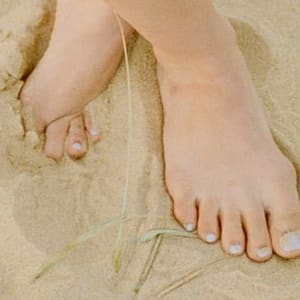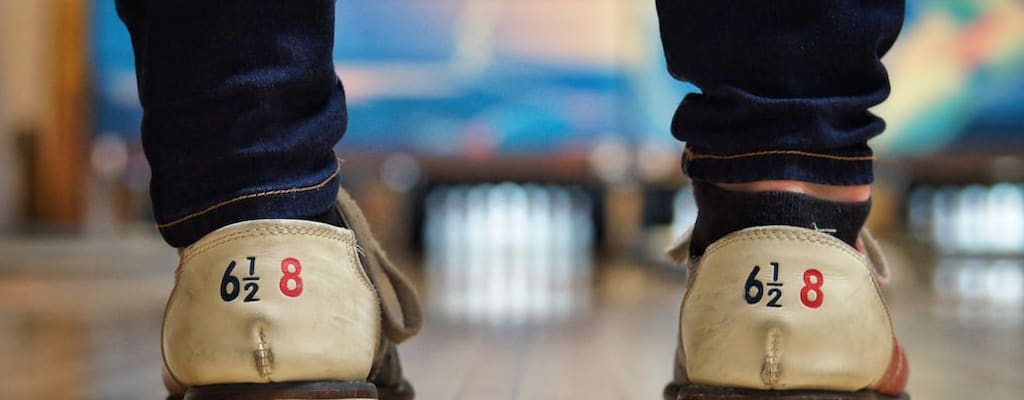beat feet: Idiom Meaning and Origin
What does ‘beat feet’ mean?
The idiom "beat feet" means to leave or go away quickly. It is a colloquial phrase that suggests a sense of urgency or haste in departing from a place or situation.

Idiom Explorer
The idiom "make tracks" means to leave or depart from a place quickly or hastily.
The idiom "leave home" means to go away from one's house or childhood home, usually to live independently or start a new chapter in one's life.
The idiom "leave at the door" means to put aside or forget about something, usually negative or burdensome, and not let it affect the current situation or environment.
The idiom "kick up one's heels" means to relax, have fun, or engage in lively enjoyment and uninhibited behavior.
The idiom "kick one's heels" means to wait idly or impatiently for something or someone without any purpose or result.
The idiom "kicking boots" refers to a person who is in a state of great energy, enthusiasm, or readiness to take action.
The idiom "jog on" means to go away, leave, or move on. It is often used to dismiss someone or to suggest that they should go away without causing any further trouble or interruption.
According to my extensive research as a specialist in idioms, the idiom "itchy feet" refers to a strong desire or restlessness to travel or move around. This expression is often used to describe someone who is eager to explore new places or embark on new adventures.
The idiom "hit the road" means to leave or start a journey. It suggests the action of physically hitting a road to begin a trip or adventure.
The idiom "hit the pavement" means to go outside and start walking or running. It is often used to indicate someone taking action or making an effort.
Unveiling Origins
The idiom "beat feet" is a colloquial expression that originated in the United States. It is often used in informal speech, particularly in American English, to imply a swift or hurried departure. The word "beat" in this context means to strike repeatedly or to defeat, while "feet" refers to the body part used for walking and movement. The idiom is believed to have its roots in African American Vernacular English.
One theory suggests that "beat feet" may have emerged as a slang expression in the mid-20th century. It gained popularity among various communities, especially in urban areas, due to its catchy and expressive nature. The use of alliteration, with the repeated 'b' sound in "beat" and "feet," adds to its appeal and memorability.
Another possible influence on the creation of the idiom "beat feet" is the phrase "beat a retreat," which means to withdraw from a challenging situation. The similarity in pronunciation and meaning could have contributed to the formation of this colloquial expression. However, concrete evidence or historical documentation to fully establish this theory is lacking.
"Beat feet" is commonly used figuratively to convey the idea of urgency or a rapid departure. It can be found in everyday conversations, literature, and various forms of entertainment. The idiom can be used in different contexts, such as leaving a location in a hurry, escaping from an unpleasant situation, or making a quick exit.
Related idioms to "beat feet" include "make tracks," "hit the pavement," "going away," and "fly off." These idioms share the common theme of movement or departure. "Make tracks" refers to leaving quickly, much like "beat feet." "Hit the pavement" is an expression used to emphasize the act of walking or running, similar to how "beat feet" focuses on the movement of feet. "Going away" is a more general phrase that can be used to indicate leaving a place, while "fly off" implies a swift and sudden departure. All of these idioms are associated with the idea of leaving or moving away rapidly.
The idiom "beat feet" captures the concept of hurrying or quickly moving away. Its informal nature and lively expression make it a versatile phrase in American English. Although the exact origin and etymology of the idiom remain somewhat uncertain, it has gained popularity and widespread use over the years. The addition of related idioms further expands the understanding of the theme of movement and departure in colloquial expressions.
Example usage
Examples of how the idiom *beat feet* can be used in a sentence:
- After the movie ended, we had to beat feet to catch the last bus home.
- When we heard the thunderstorm approaching, we quickly beat feet back to the campsite.
- Once the alarm went off, she knew it was time to beat feet and get ready for work.
More "Physical" idioms



